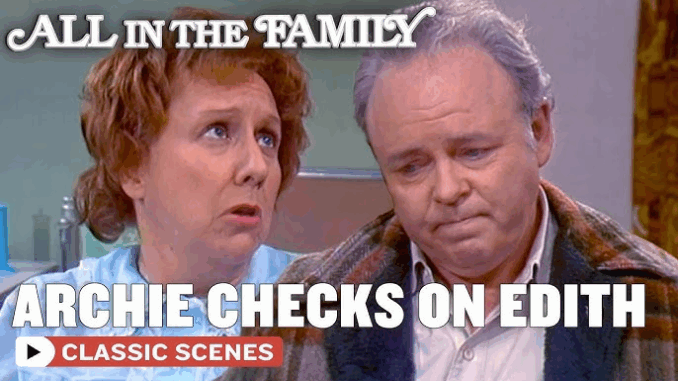
It’s hard to imagine now, in a world saturated with edgy content and boundary-pushing storytelling, that a sitcom filmed in front of a live audience once caused a national uproar — not for scandal, but for honesty. Yet that’s exactly what All in the Family did when it premiered in 1971. It didn’t just make people laugh. It made them uncomfortable, reflective, and — perhaps most importantly — engaged.
Before All in the Family, sitcoms were largely escapist. Families were neat, dialogue was clean, and conflict never touched the real-world turbulence of the times. Enter Archie Bunker: a loud, opinionated, working-class man whose worldview was shaped by fear, tradition, and a lack of exposure to difference. He was ignorant, yes — but never entirely hateful. He was, in a word, human.
That’s what made the show so revolutionary. Norman Lear, the visionary behind the series, didn’t create All in the Family to validate or villainize. He created it to reflect. Archie’s living room became a national stage where issues like racism, economic inequality, women’s liberation, and generational conflict played out weekly.
The brilliance of the show lay in its structure. It wasn’t a lecture — it was a conversation, one filled with humor, sarcasm, and sometimes heartbreak. Edith Bunker (Jean Stapleton), Archie’s patient and kind-hearted wife, often provided the moral compass. Their daughter Gloria and son-in-law Mike brought the voice of the emerging liberal youth. Through these characters, viewers of all ages and ideologies found a place to land.
And people watched — in droves. For five straight seasons, All in the Family was the most-watched show in the United States. But more than ratings, it achieved something few shows ever do: it entered the American consciousness. Lines from the show were quoted by politicians, debated in newspapers, and echoed in family dinners. Archie Bunker became both a cautionary tale and a mirror — and in many ways, he still is.
Today, as America continues to wrestle with questions of identity, division, and dialogue, All in the Family feels eerily relevant. Its brand of uncomfortable comedy is a blueprint for modern shows like BoJack Horseman, Transparent, or Succession, which challenge audiences to confront hard truths beneath the humor.
In the pantheon of television history, All in the Family isn’t just important — it’s essential. It dared to say what others wouldn’t. It proved that laughter and progress can coexist. And in doing so, it forever changed what a sitcom could be.